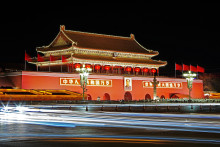Indonesia: Facts & Figures
Structured interest of the UT since: 1970’s
Main focus: educational collaboration, recruitment of students
Other collaborations: staff and student exchange, research collaboration
Examples of partner institutes: Institut Teknologi Bandung, Universitas Gajah Mada, Universitas Padjadaran, Universitas Indonesia, BINUS University, Universitas Diponegoro, Universitas Islam Indonesia
Development over the years:
|
Indonesia (number of students per year) |
2015/16 |
2016/17 |
2017/18 |
2018/19 (preliminary number) |
|
Enrolled (Master and Bachelor) students |
60 |
71 |
81 |
|
|
Influx of Bachelor students |
5 |
6 |
5 |
18 |
|
Influx of Master students |
37 |
42 |
33 |
15 |
People in charge: Lyande Eelderink (country coordinator), Nicholas Brightwell (international recruitment officer, M&C department)
Strong bonds
The university’s bonds with Indonesia are vast and deep-rooted. Projects with some of the Indonesian partner institutes have existed almost as long as the UT itself - since the 1970’s, when the ITC Faculty started helping to set up courses and faculties at ITB (The Bandung Institute of Technology or Institute of Technology). To this day, the UT has established seven double degree programs and it collaborates with 30 Indonesian institutes.
'Indonesia has knowledge on geothermal energy that we could learn from'
What type of focus country is Indonesia? Does the focus lie in recruitment of students, student or staff exchange, research collaboration? ‘I think all of those are valid,’ answers Lyande Eelderink, the country coordinator for Indonesia. ‘Our collaborations are generally focused on education, but there are joint research projects and there is certainly potential for even more research collaborations, which could also be mutually beneficial. For example, Indonesia has knowledge on geothermal energy that we could learn from.’
A lot of interest
It is the education cooperation, student exchange and recruitment where the UT’s focus on Indonesia is the sharpest at the moment. Relatively large numbers of Indonesian students arrive to Twente every year to pursue their Master or, less often, Bachelor degree. This is partly due to the country’s historic ties with the Netherlands and partly thanks to active recruitment of students directly in Indonesia. A task that is largely in the hands of international recruitment officer Nicholas Brightwell.
'Many of the interested students don’t make it here due to financial issues'
‘There is consistently a lot of interest,’ he says. ‘When we go to fairs in Indonesia, we sometimes come back with roughly 1000 contacts. However, many of these interested students don’t make it here due to the usual suspects like financial issues. Indonesia is a scholarship country – if the number of scholarships provided by the Indonesian government drops, you can see it in the numbers of incoming students.’
Good quality of life
What is it that attracts these young people specifically to Twente? ‘The UT does need a bit of branding, because it is not as well-known as Delft or Leiden, for instance,’ explains Eelderink. ‘That is why I highlight the fact that we have been named the best technical and the best entrepreneurial university. When talking to students, I focus on the good quality of life they can get here. That it’s comparatively easy to find accommodation, it’s clean and safe and green – so it has things some cities in Indonesia, such as Jakarta, lack. Jakarta is so polluted and crowded, very unlike Twente.’
‘The campus is also a big advantage for us,’ adds Brightwell. ‘Most Indonesian universities have campuses. It shows that the UT offers a safe environment, which is very important especially for parents. We have a lot of partner universities in Indonesia, so the name of the UT gets spread around the country indirectly and people know us. On top of that, we go to fairs and visit schools, we are active on social media and have a miniwebsite in Indonesian.’
'Indonesians are less direct, so it takes more time to build a good relationship with them'
Technical studies
Indonesian students coming to Twente mainly select technical studies. ‘That is true especially for Master studies, but since all Bachelor studies are now also in English I think there is a big potential there,’ says Eelderink. ‘Namely, students mainly go for Advanced Technology, Sustainable Energy Technology, Creative Technology or Chemical Engineering. I’m always surprised with how many Indonesian students want to study technical fields. There is a big market for it in Indonesia. Even many girls go for it, which is not that common here.’
‘It takes more time to build a good relationship’
Are there any other surprises? Are there any cultural differences that you need to take into account when dealing with people and institutes in Indonesia? ‘Yes, of course the culture is different,’ answers the country coordinator. ‘Indonesians are less direct, so it takes more time to build a good relationship with them. Dutch people can be very to the point, but you need to be a bit more tactful over there. Also because it’s a predominantly Muslim country you need to take the local rules into consideration. Lastly, in Indonesia it’s hard to work over distance. People are less reactive to emails, they do everything over Whatsapp.’
With such a long history, the collaboration of the UT with Indonesian partners seems to be running rather smoothly. Are there any plans or changes on the horizon? ‘Our 2020 strategy generally focuses on increasing numbers of students from all countries, but if it comes to Indonesia this should only be a slight increase, because we only have so much capacity and that many study programs,’ says Brightwell. ‘In general, we are trying to increase brand awareness of the UT in Indonesia. We plan to work with local media and we’d like to build a more tight alumni community over there. We have over 1500 alumni in Jakarta alone. We want to achieve a moment when the UT is the first technical university in the Netherlands that people think of.’
Student’s voice: ‘I like everything except the weather’
Dzul Dzulqarnain (MSc Internet Science & Technology)
Why did you decide to study at the UT?
‘I chose the UT because my program offers a variety of courses that I believe could improve my career. The UT is also one of the best technical universities in the Netherlands and has a lot of international students, so I believed it could provide me with a pleasant environment while studying. I also considered the University of College London and Chalmers University of Technology (Sweden), but neither of them has a program that offers the same variety of courses as Internet Science & Technology at the UT.’
Is the UT what you expected it to be?
‘Yes, I can't expect more from one of the best technical universities. They provide top quality infrastructure in order to keep us healthy – there is a gym, a swimming pool, a football field, tennis etc. And there are a lot of exciting student associations. I like everything except the weather. There are of course some cultural differences. Compared to Indonesia, Dutch are more open-minded and quite straight in the discussion. The taste of the food also is quite “plain” compared to Indonesia.’
Is there something the UT can do to get more Indonesian students and/or to make it easier for them to study here?
‘Housing is one of the problems, and I don’t know how to make it easier to get a room. I understand this is also a problem for other international students.’







